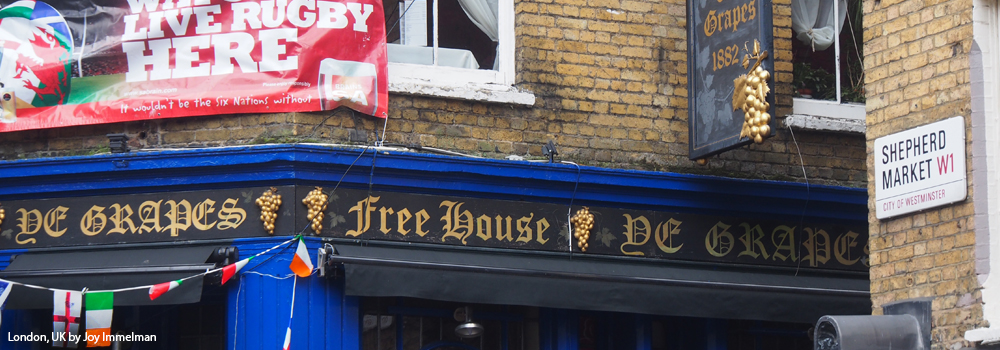Rugby Fever in the Land of the Rising Sun
The last time that Peter Sullivan, retired Editor-in-Chief of Independent Newspapers wrote for us, it was from Mogadishu where he was an information officer working for the African Union and the United Nations in Somalia. He continues to enjoy his ‘retirement’ and more recently, he has been in Japan to check out what is in store for fans planning to go to the 2019 Rugby World Cup. What he found was quite eye-opening.
Thinking of going to Japan for the rugby?
“Too expensive, too foreign, too far, too much raw fish, difficult language, funny writing, and in any case the Springboks don’t have a hope,” is a somewhat typical response from many of my South African friends. So off I went in March to see what Japan was really like, whether the populace actually knew they were going to host the rugby, whether they knew what rugby was really about, and how much it would cost. In short, would it be worth going?
The answer is an overwhelming ‘yes!’ or, as they would say, ‘hai!’
In an interview with the CEO of Japan Rugby 2019, Akira Shimazu responds cautiously to questions about cost, attendance figures, host cities, dates for ticketing and other technical stuff. But when it comes to welcoming people from traditional rugby-playing countries, his square face, set on a bulldog neck, solidly atop his square front-row body, breaks into a smile. “You know Invictus? “Our cup will be Invictus 2. Yes, Invictus 2!”
Indeed, as I travel around Japan, possibly the world’s most civilised country where everyone is polite, concerned for others’ welfare, while maintaining a dignity and privacy that is almost palpable, talk of rugby brings a smile. In Ishinomaki where the tsunami was particularly devastating we stop at a small, eight-seater sushi restaurant. The sushi chef is pretty unsmiling, showing that inscrutable face with which old literature brands all Orientals. Does he know about the rugby coming to Japan in 2019?
He nods. “Hai.” I suspect he says this just to placate me. He then looks directly at me and adds: “We beat you!” with a roar of laughter.
Figures bandied about say 900,000 Japanese watched the game against the Springboks last year, but because they won to everyone’s amazement by the end of RWC2015 a quarter of Japan’s 126 million souls had watched a game. It became a huge boost for national pride.
My trip took me to Tokyo, Osaka, Ishinomaki, Yokohama, Kyoto, and Toyoto City. Mostly by car with a driver but I flew, took the underground in Tokyo, and (best of all) three Shinkasen trains, the high-speed way to travel Japan at 300km/h. At peak times there’s one every six minutes from Tokyo to Osaka, taking two-and-a-half hours for the 500km trip. Awesome experience.
As for the cost of visitng, Tokyo was once the world’s most expensive city but now does not make the top ten. It has had no inflation for 20 years, so prices now are what they were 20 years ago in many restaurants. And the food. What can I write to do it justice? It is simply magnificent, an enormous variety, from raw fish to a braai you do at your own table, using the best beef you have ever tasted. In Tokyo I go for yaki niku, about 15 fairly thin slices of Wagyu beef, from three different cuts like rump, belly and neck, and you cook it on a gas grill cut into every table. And only R340 with a beer thrown in.
As a guest of the government I was fortunate to stay in great hotels but I did go look at cheaper options. Some of them have rooms too tiny for rugby players, and do not book a four-sleeper at a cheap hotel unless you are all thin and short and happy to sleep like spoons. But AirBnB is available, as are Bed and Breakfasts, and outside Tokyo accommodation is more reasonable. As the 2019 Rugby World Cup games are spread across 12 cities in Japan you can stay anywhere and catch the Shinkasen. All cities want to host the Springboks but bidding has not started yet. Staying where the team stays might be a good idea, and it is unlikely to be Tokyo so prices should be better. It won’t be until 2017 or 2018 that we get dates, ticket sales, team cities.
And the language? Can be a problem, but in one city, Yokohama, the head of tourism has started courses for taxi drivers to learn basic English. “They will all do the course,” she says emphatically. This being Japan, she is probably right. All traffic signs are being converted to international or multi-lingual, and public transport is outstanding. In 2020 Japan will host the Olympics, so there is a double reason to get language barriers broken down.
So do the Springboks have a chance? Who knows. South Africa will definitely have a different President by 2019, that much I can predict. Although the rugby result is unpredictable, I am prepared to put some valuable items on a chopping block to bet that anyone who goes to Japan for the RWC will not regret it and will love the experience.

